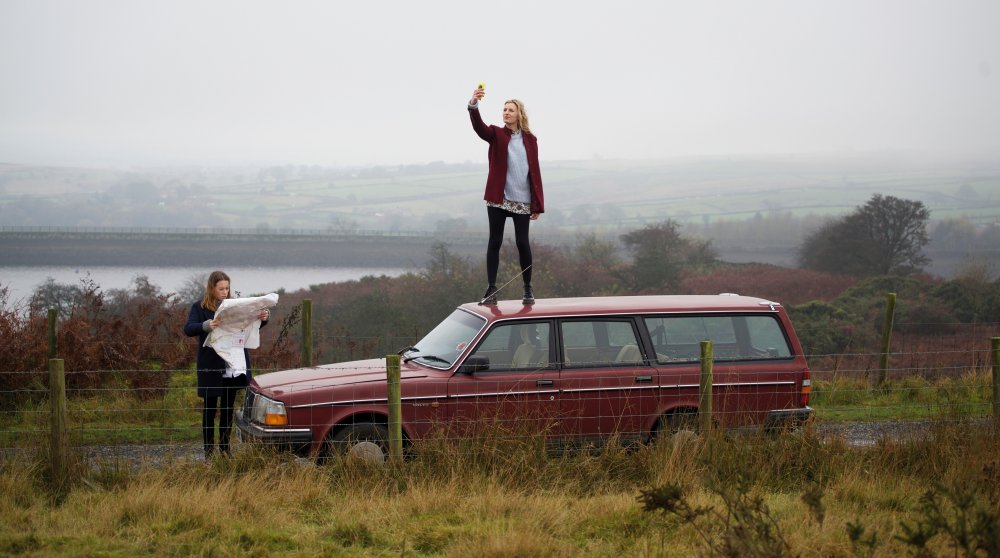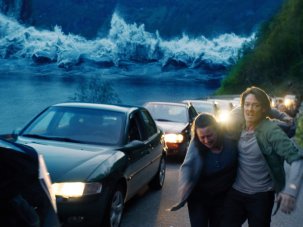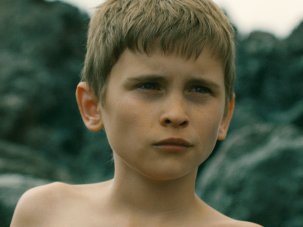The new film from an established director…
Ryuzo and His Seven Henchmen

Ryuzo and His Seven Henchmen (2015)
What’s it about?
Retirement doesn’t sit well with aging former Yakuza boss Ryuzo. So when he’s scammed by a young gang, he uses the affront to get himself and a bunch of fellow elderly, ailing mobsters back in the game, taking on these pretenders armed with guns, knifes and, er, walking sticks.
Who made it?
Japanese icon Takeshi Kitano is one of the few world-renowned filmmakers to span serious festival award-winners (Hana-Bi, Zatoichi) and multiplex favourites like this hit comedy. Likewise, cineastes may remember Ryuzo star Tatsuya Fuji from his revealing role in Nagisa Oshima’s controversial 1976 classic In the Realm of the Senses.
What’s special about it?
Even when Kitano operates in a more mainstream, light-hearted register, broad doesn’t mean shallow. And while there’s plenty of enjoyable knockabout slapstick as these scatty pensioners try to prove they’ve still got their steely ruthlessness of old, this film is also a touching look at a previous generation getting unceremoniously discarded, not just by society as a whole, but by unsympathetic families.
Little wonder, then, that they return to the familiar comforts of a different type of clan. And yet old age isn’t mollycoddled. The film is equally attuned to the delusional nature of nostalgia, particularly a standout scene where the yakuza try one-upping each other with exaggerated tales of youthful prowess. If you’re used to seeing Kitano handle tales of cops and gangsters with uncompromising violence – the likes of Hana-Bi, Sonatine or Outrage – it’s great to see him return to familiar turf with such a refreshing, comedic twist.
The breakthrough…
Burn Burn Burn

Burn Burn Burn (2015)
What’s it about?
Two young women are sent on a beyond-the-grave mission by their recently deceased male friend: a road trip across Britain to scatter his ashes at strategic locations, while he provides a bracing video commentary that forces them all to reassess their lives.
Who made it?
In the LFF’s declared year of “strong women”, this new British comedy is an ideal premiere. It’s the feature debut of two new homegrown female talents, director Chanya Button and writer Charlie Covell, along with a strong cast led by two more rising stars, Chloe Pirrie and Laura Carmichael.
What’s special about it?
Making something genuinely funny is hard enough, but trying to combine comedy and tragedy – and few things are as tragic as a life prematurely snuffed out – is an incredibly precarious balancing act. That Burn Burn Burn’s cast and crew have managed that so adroitly here is testament to the finely tuned attention to detail of the writing, performances and filmmaking, which very clearly plays on film conventions we’ve all seen countless times, from road movies to mismatched buddy (yes, even female buddies) comedies.
There are some tough scenes here. Also some hilarious ones. And, when perfectly blended together, as in an emotional confession scene performed by a character strung up on a giant cross inside a church, you admire the self-mocking skill that can elicit laughter and tears at the same time.
The wild card…
Lost in Munich

Lost in Munich (2015)
What’s it about?
What starts as an absurdist satire about former French prime minister Édouard Daladier’s 90-year-old parrot, who sparks a pan-diplomatic incident by repeating covert 1938 Munich Agreement insults about the Czechs, shapeshifts into a behind-the-scenes look at the trials of a different, modern-day European alliance – making the film itself.
Who made it?
Petr Zelenka is a Czech playwright and theatre and film director. His previous films, including 1997’s Buttoners and 2008’s Karamazoví (the official Czech entry for the Academy Awards’ best foreign-language film) have won prizes at international festivals including Thessaloniki, Karlovy Vary and Rotterdam.
What’s special about it?
Lost in Munich’s playful, cine-literate intelligence explicitly acknowledges François Truffaut’s great movie about moviemaking Day for Night (to reveal how would spoil some of the film’s surprises) and cleverly unveils its numerous narrative switches.
Yet posing as a highly enjoyable send-up of low-budget filmmaking’s compromises and egos and the pitfalls of the Europudding production model is only part of Zelenka and co’s game plan here. The film uses its absurdist humour and through-the-looking-glass perspective to lay bare the vagaries of European politics – Daladier and Neville Chamberlain’s signing of the Munich treaty allowed the Nazis to annex Czechoslovakia’s Sudetenland, effectively neutralising its border defences.
When country and continental borders are such a hot-button topic today, issues of national self-interest and abandoning others to a likely ominous fate remain all-too relevant. This genuinely under-the-radar wild card negotiates such terrain with droll wit and assured sophistication.
















